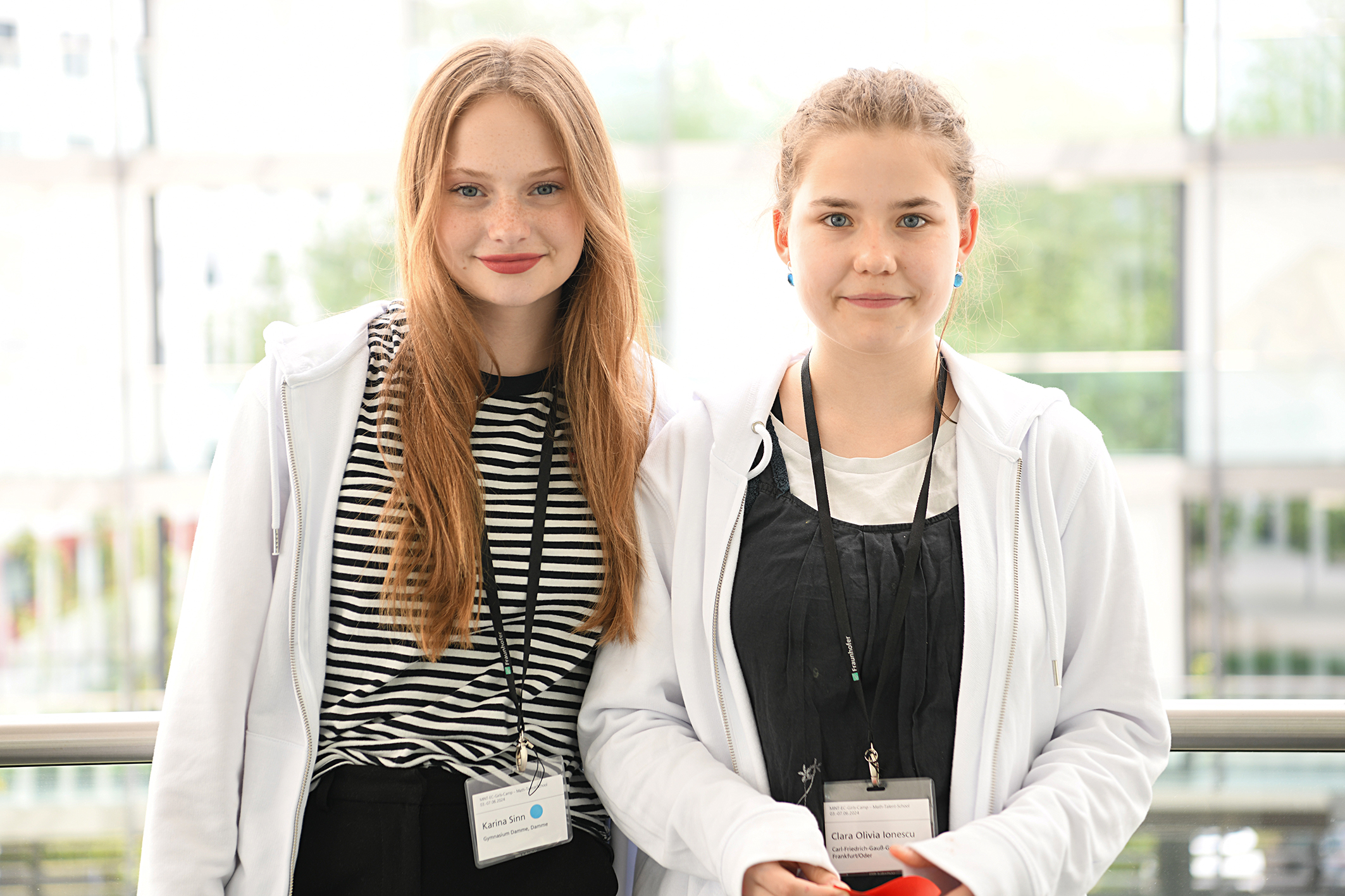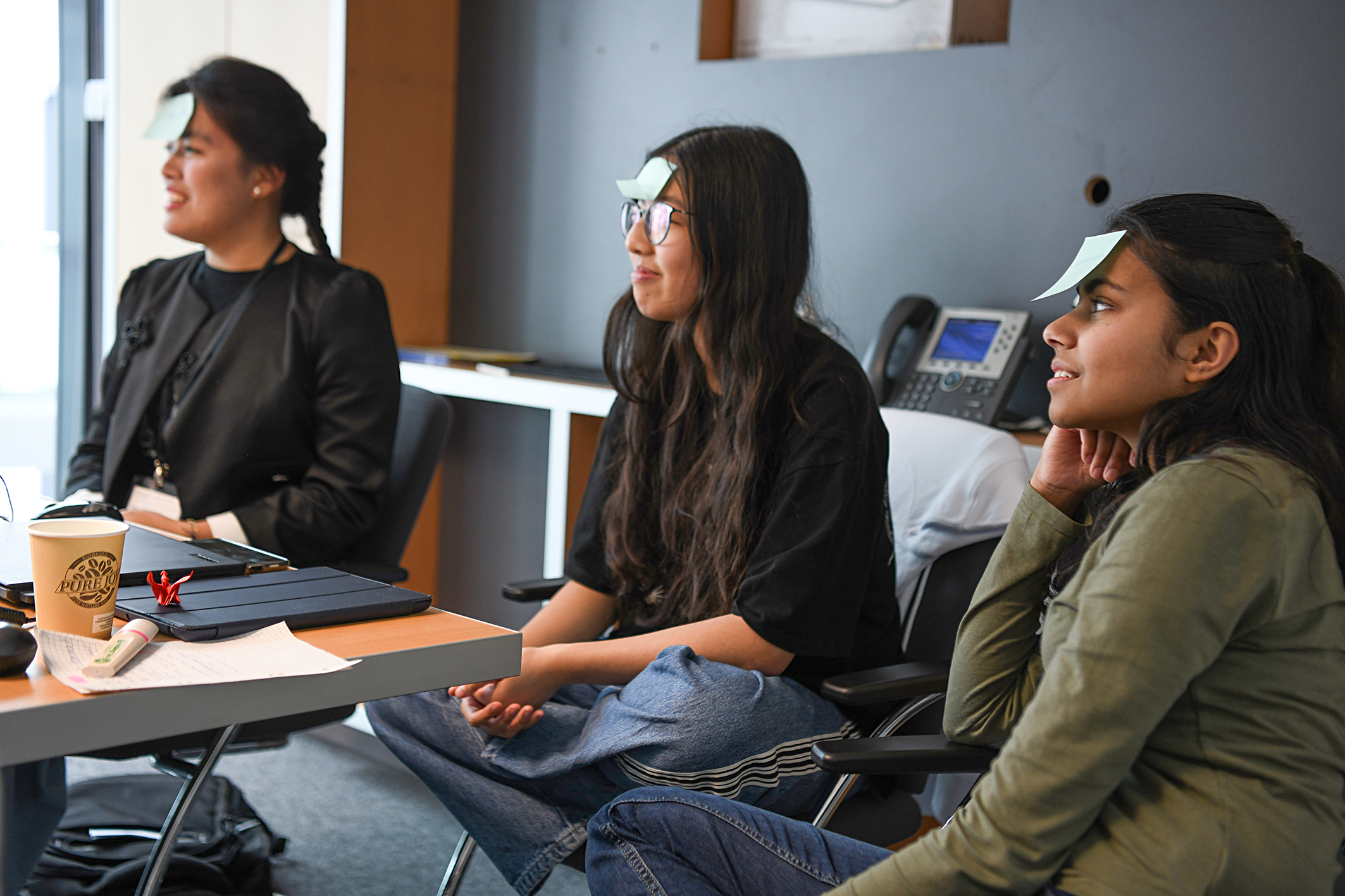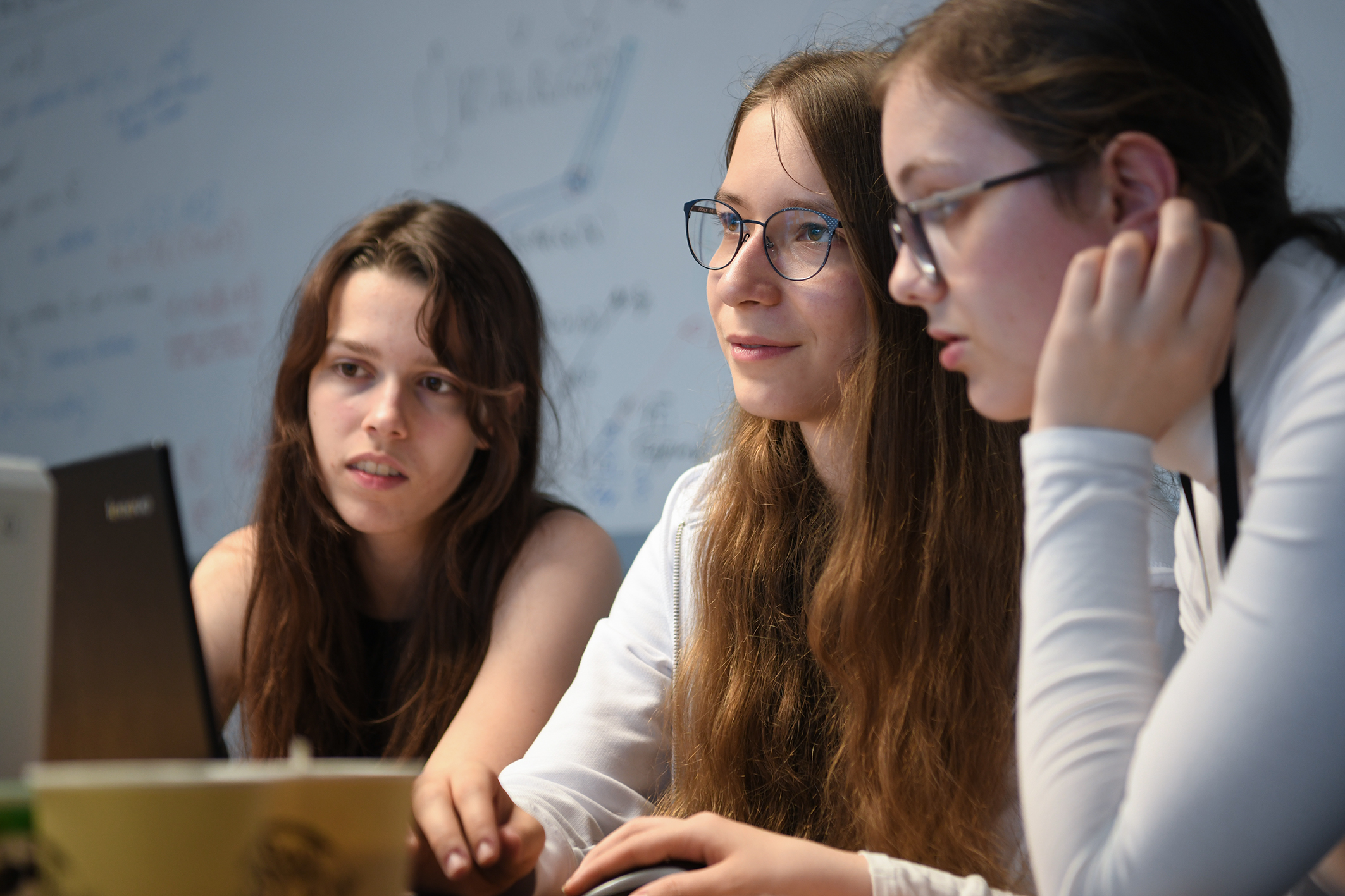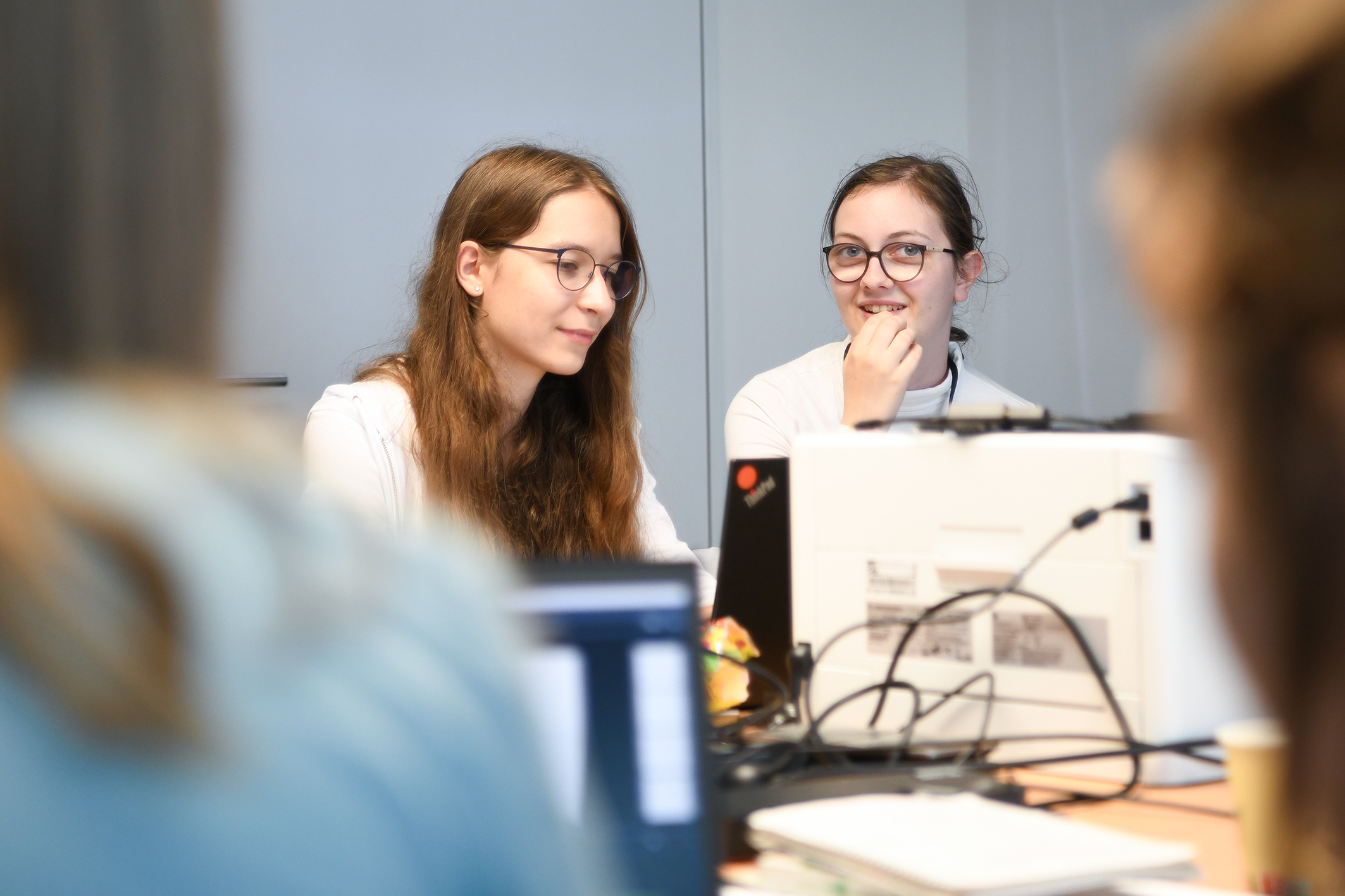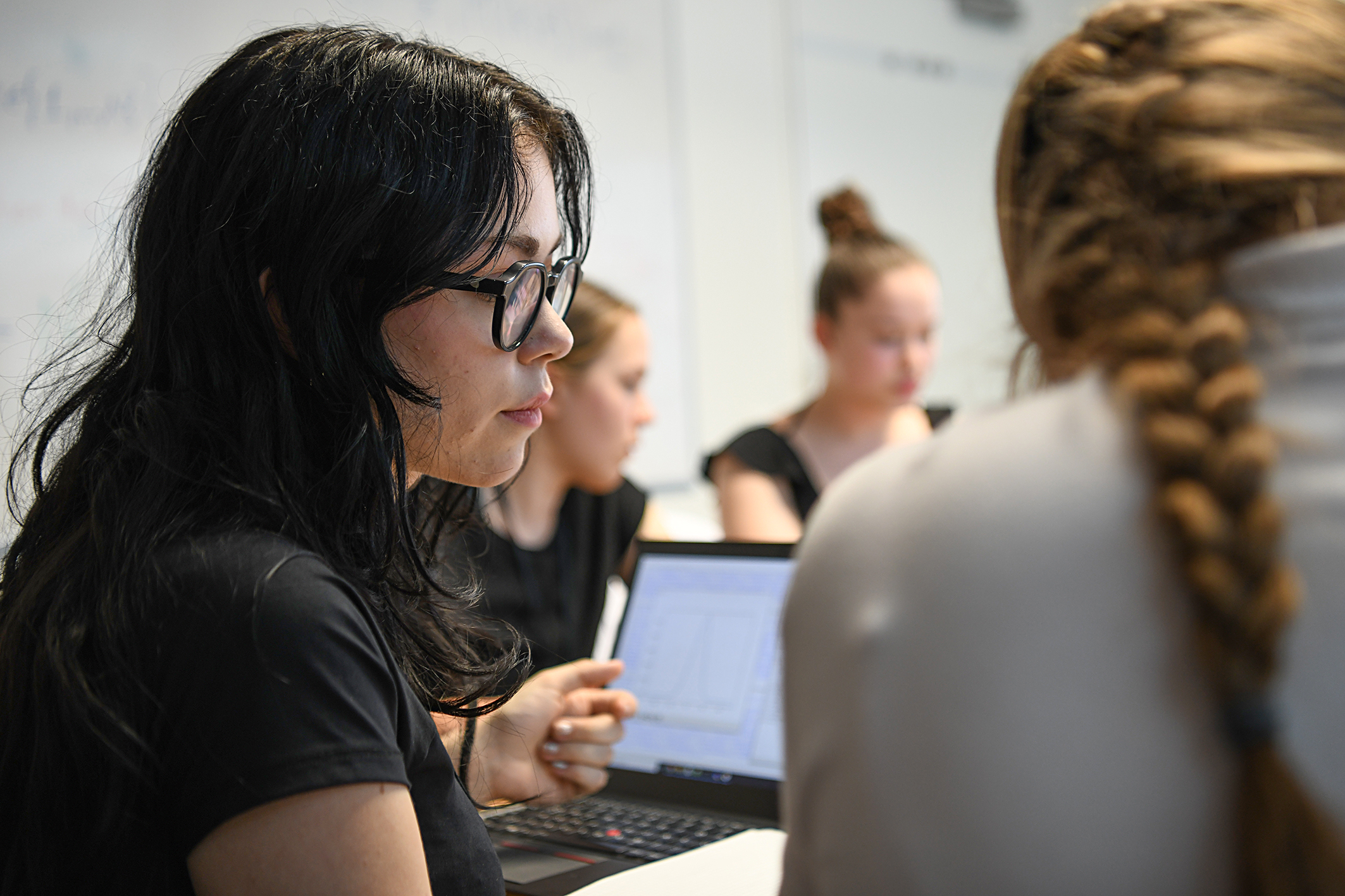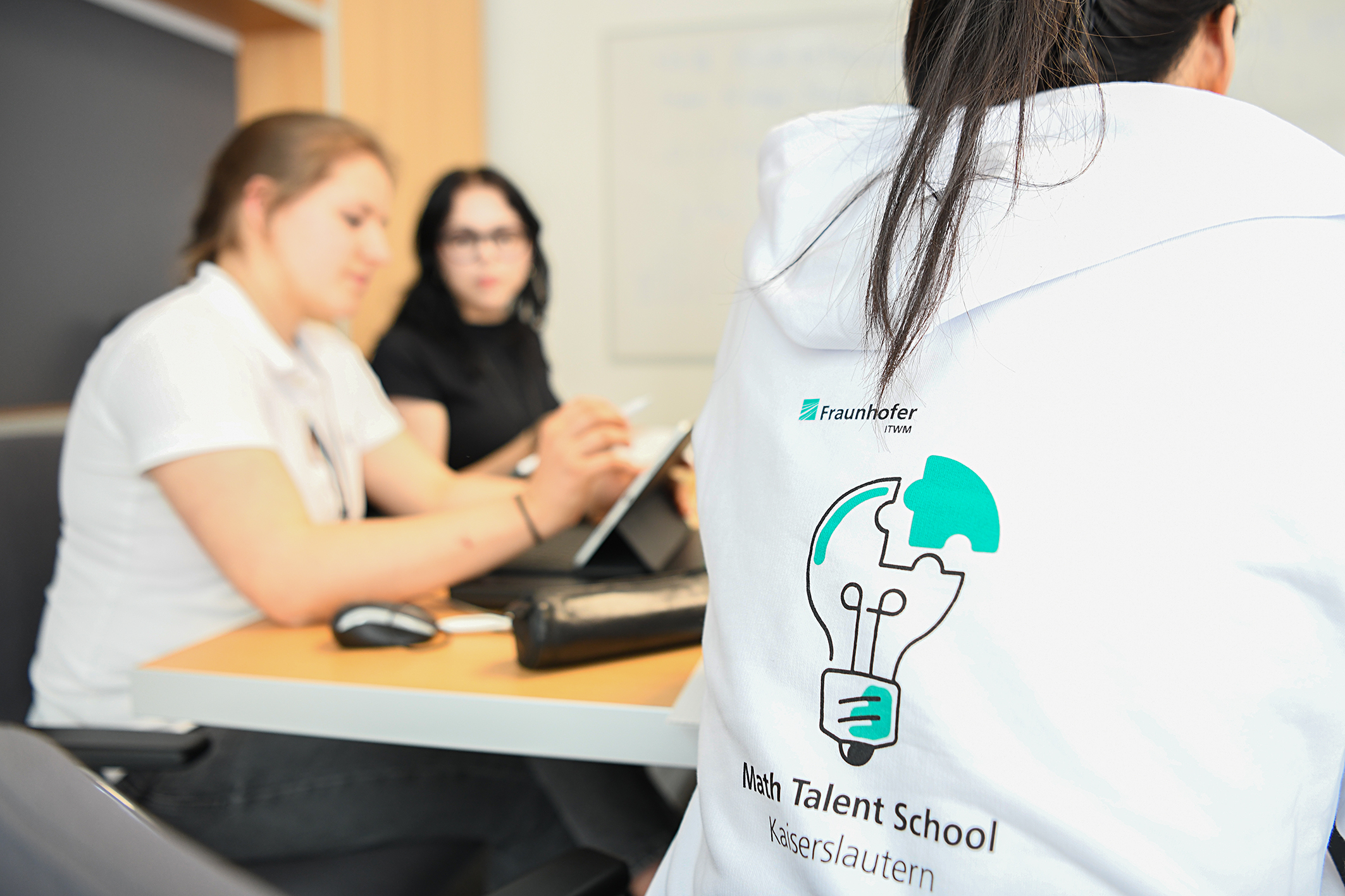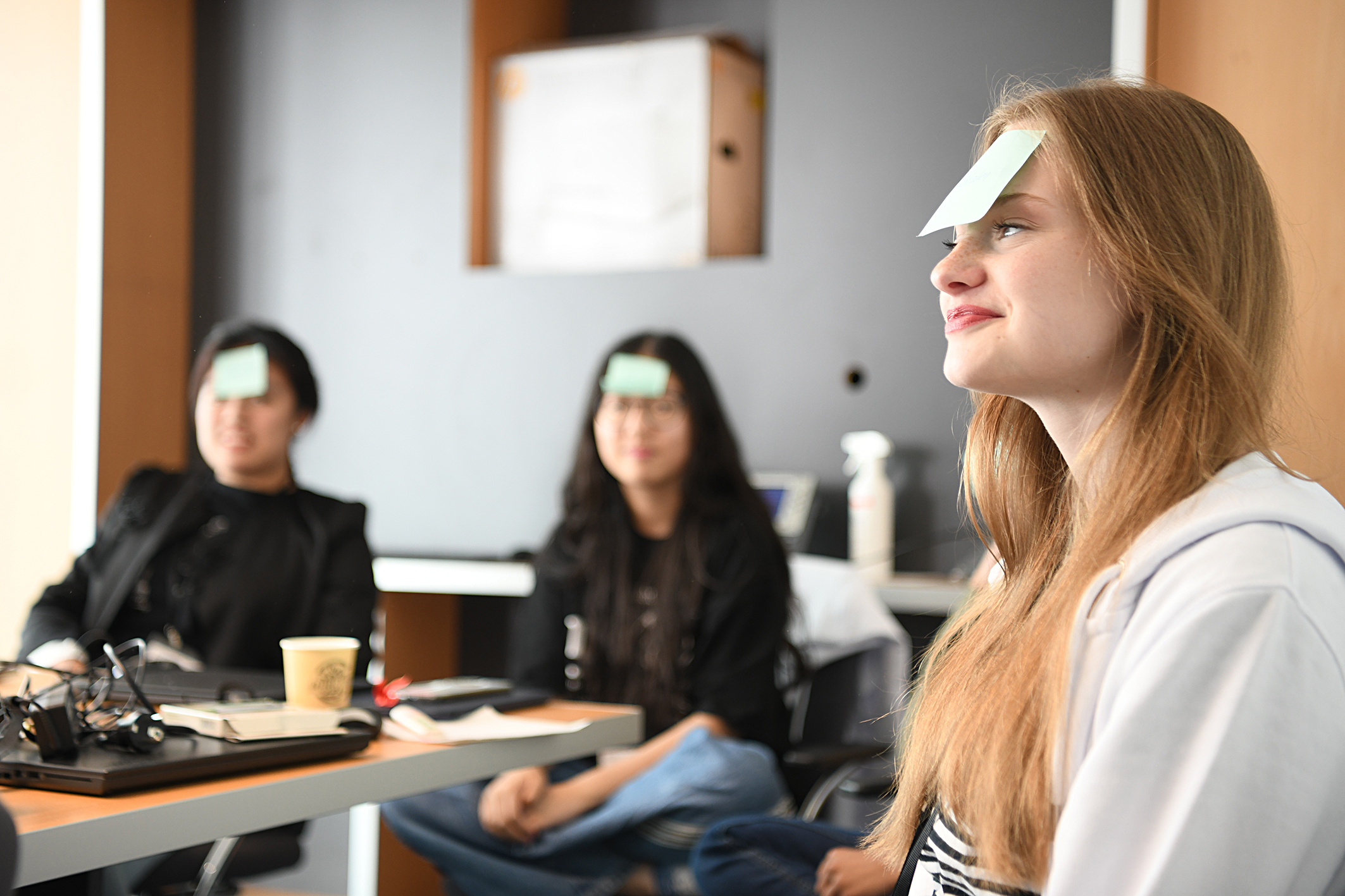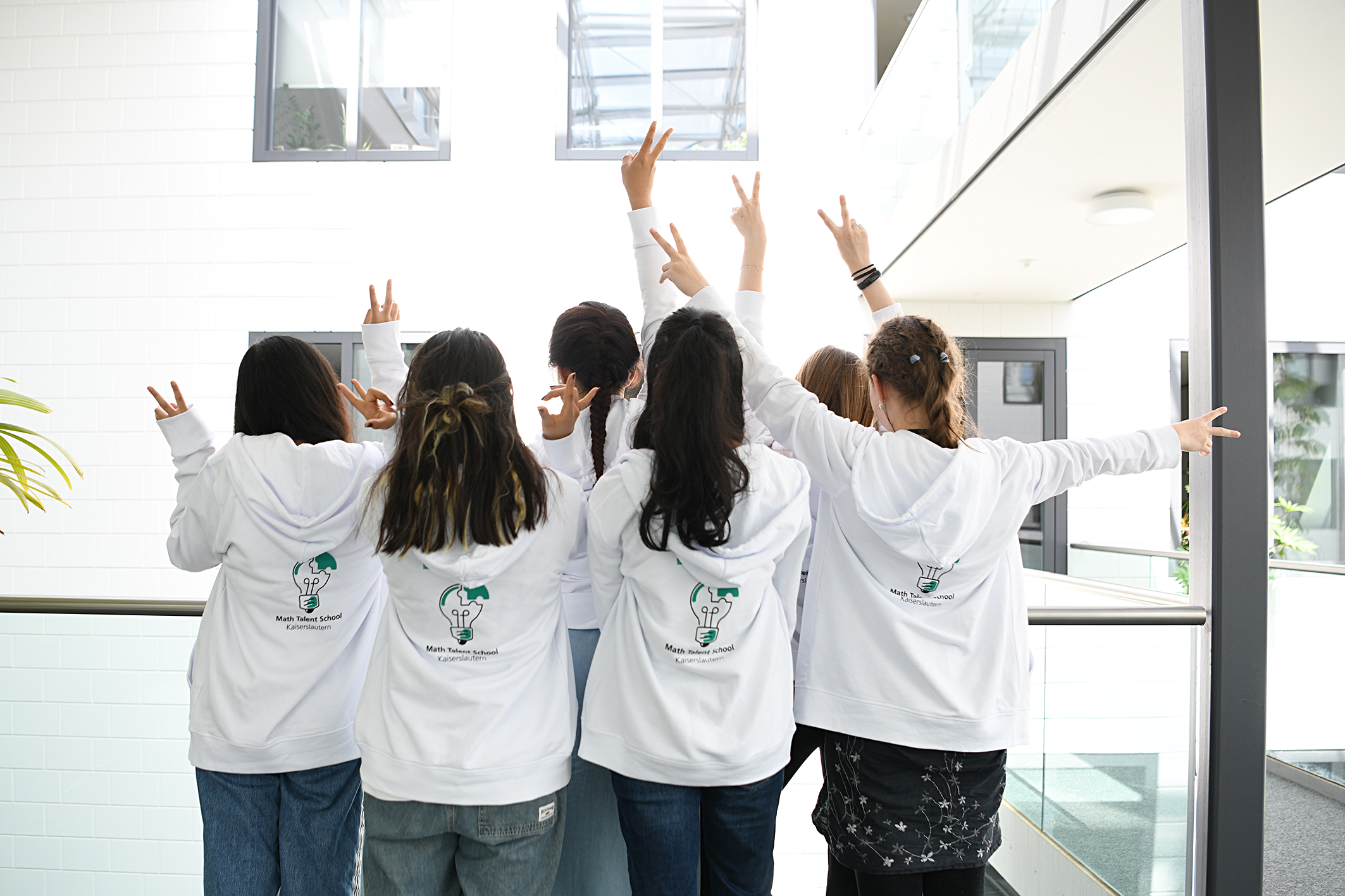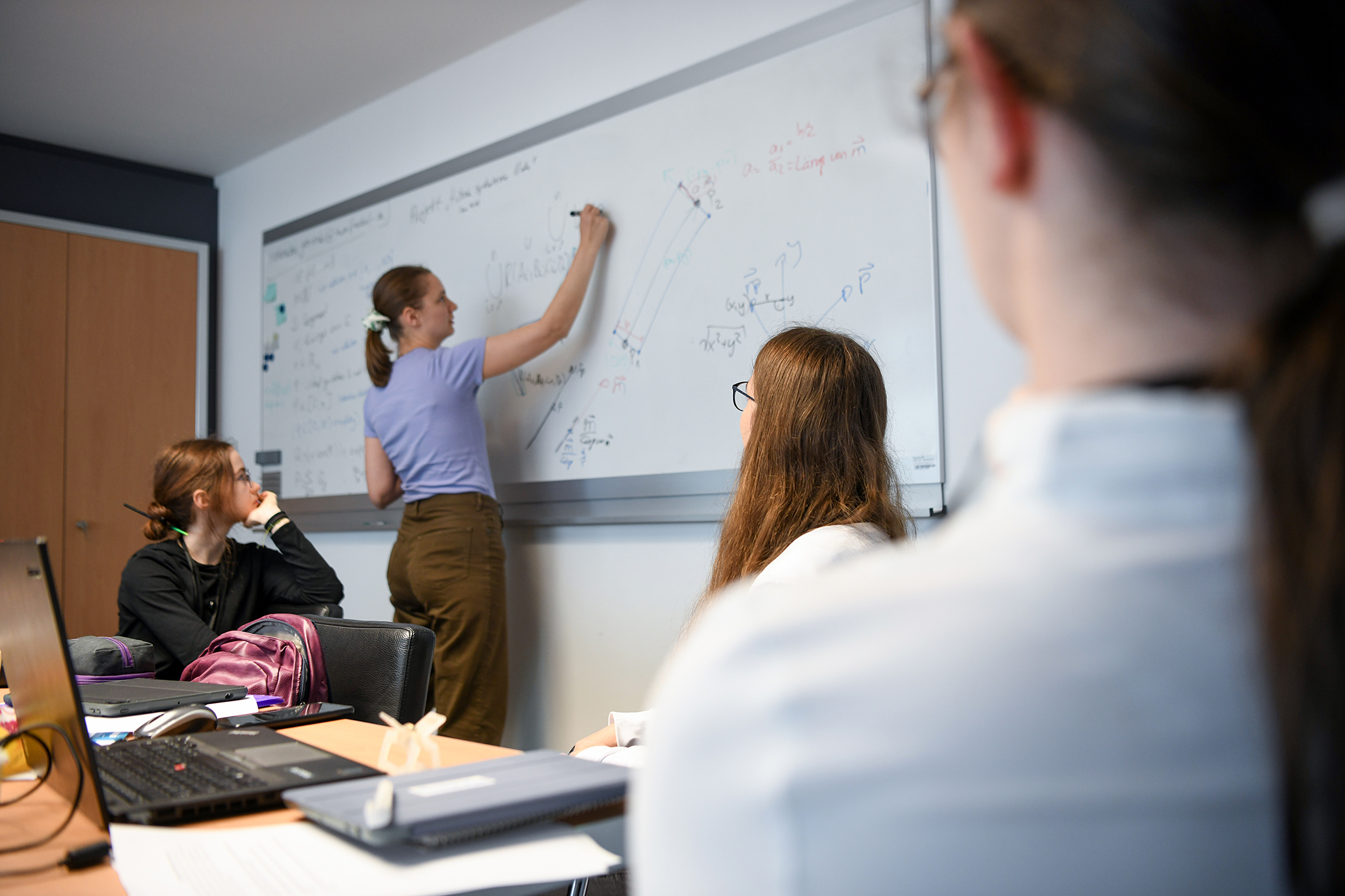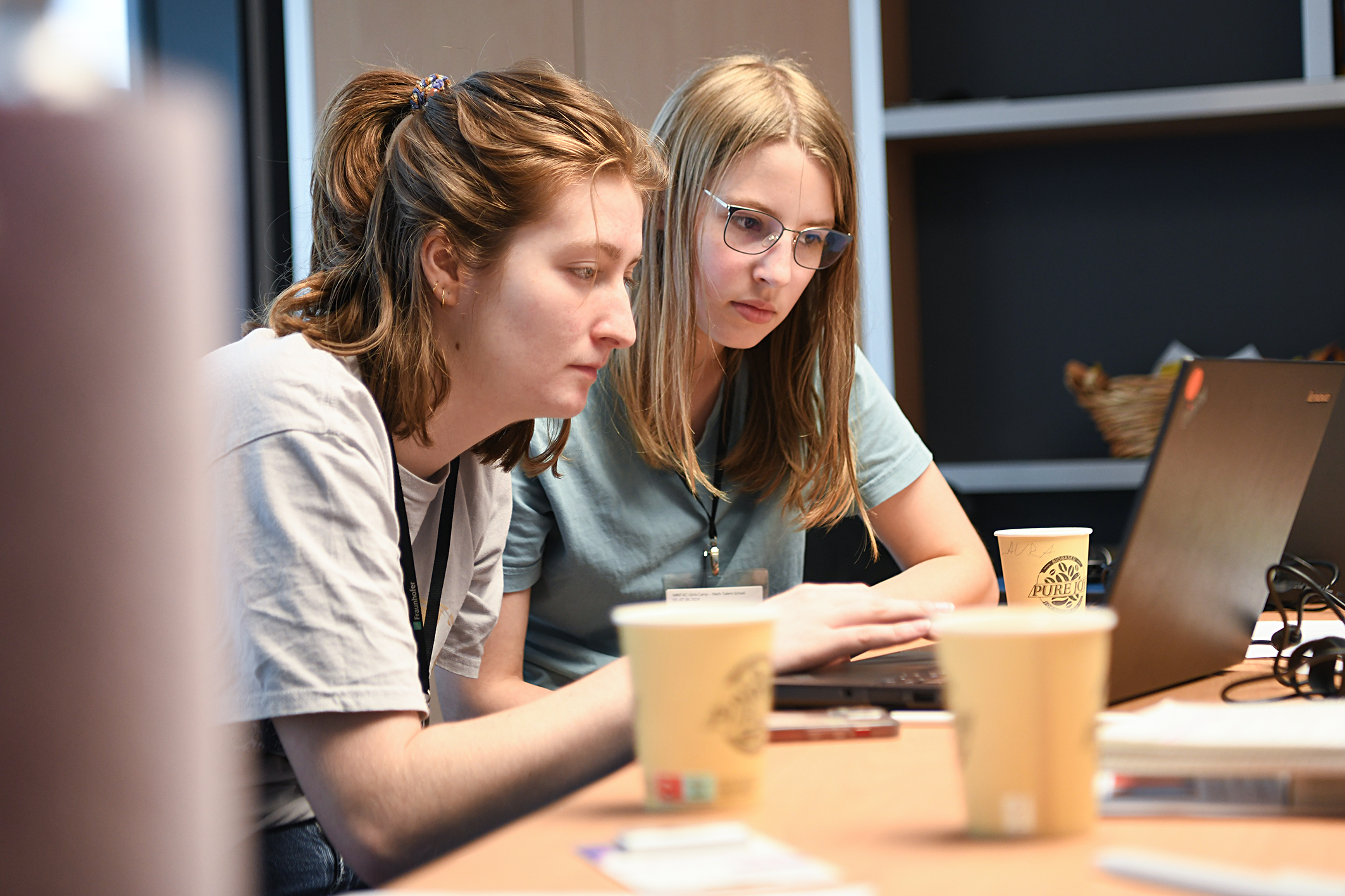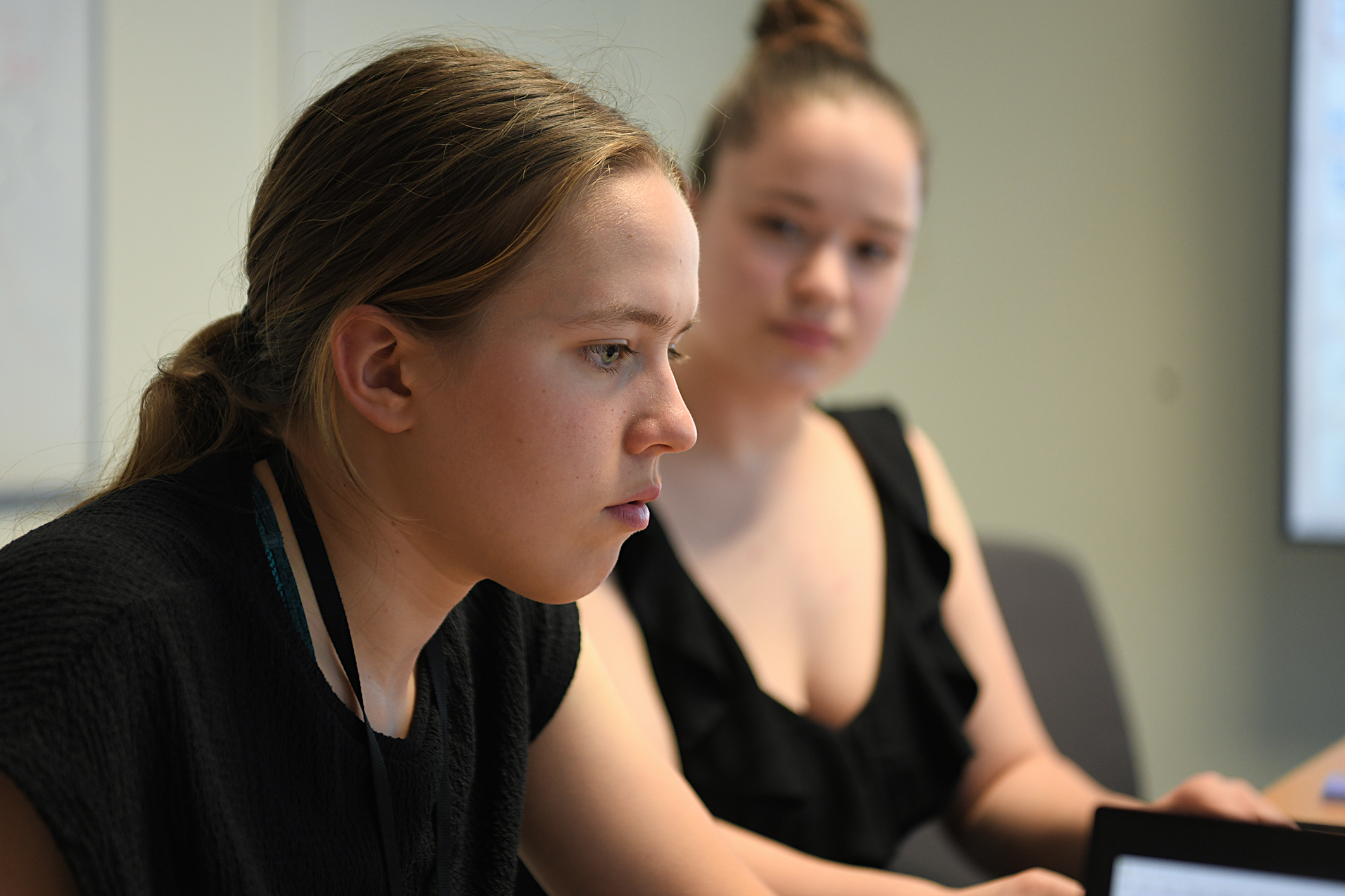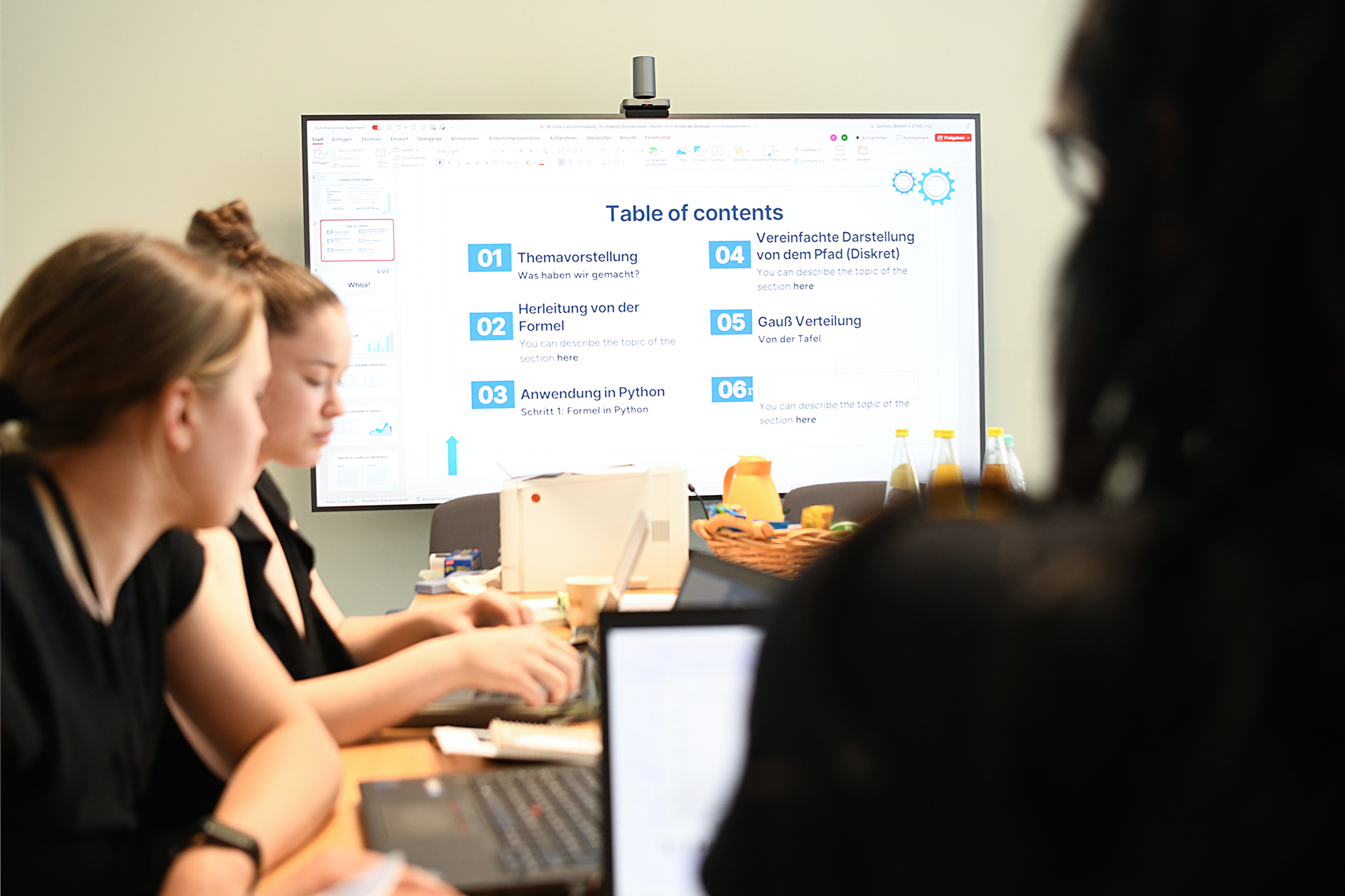What does the professional world of a mathematician look like and what is applied mathematics? 18 selected schoolgirls found the answer at our institute. Our Math Talent School from 3. to 7. June 2024 was organized by the Felix Klein Center for Mathematics as a Girls Camp.
The high school students worked on different issues in three teams using mathematical modeling and computer simulations. Right at the beginning of the week, the students were allowed to choose one of the three projects they would most like to work on:
- Producing nonwovens intelligently
- Mathematical modeling of scratches
- Fidgeting little particles – from random walk to diffusion
The whole week was spent working together on practical problems and the results were then presented and discussed at the end of the Math Talent School. In addition, the participants were able to gain various impressions of our institute and the Department of Mathematics at the University of Kaiserslautern-Landau (RPTU). In addition to a tour of the institute, the program also included a visit to our gemstone laboratory and a campus tour at RPTU. There, the young people learned about studying mathematics in Kaiserslautern. There was also plenty to do in their free time – whether it was team-building activities, a city tour of Kaiserslautern or a visit to a restaurant together.
For the first time, there was a rally in addition to the program. The groups answered questions together, were rewarded with letters and then received a solution word from the world of the Fraunhofer ITWM. The prize at the end was a bag filled with Fraunhofer surprises.
Those who didn't want to go home on Friday stayed one more night and had the opportunity to take part at the Day of Mathematics of the RPTU.
On this page we collect impressions, statements and photos of the Math Talent School 2024.
